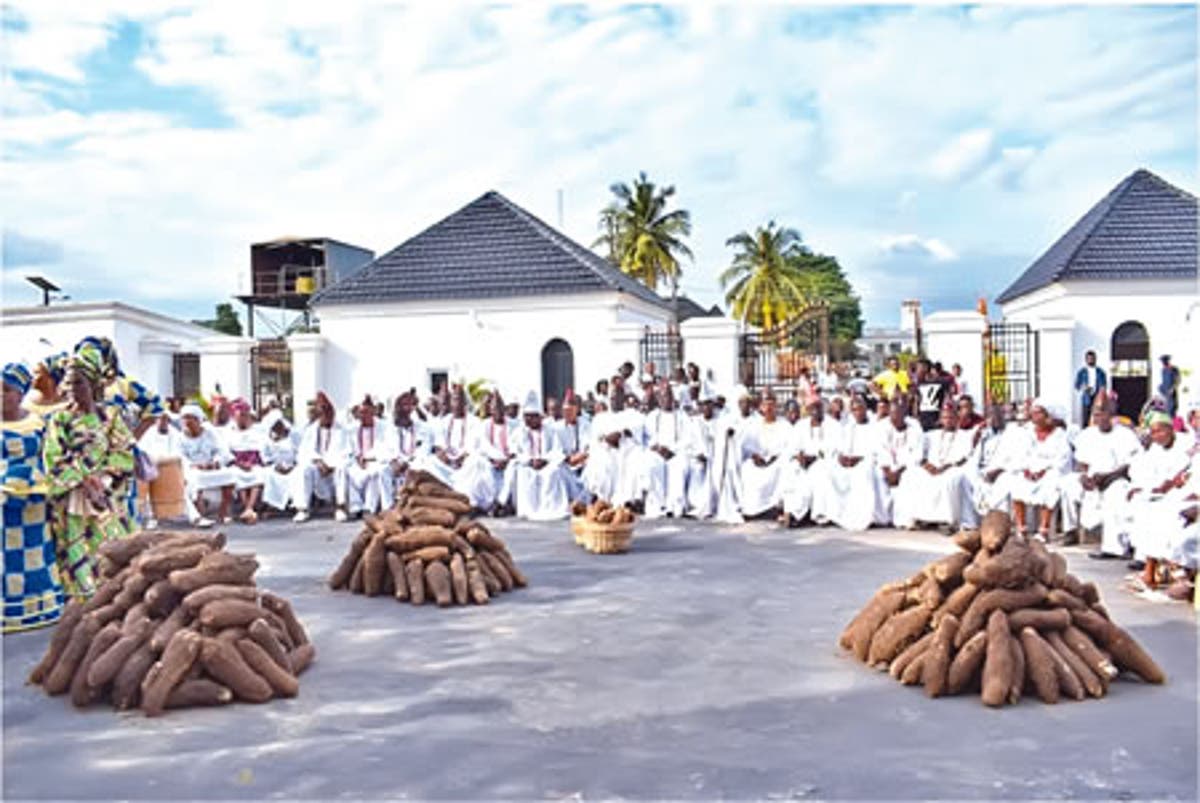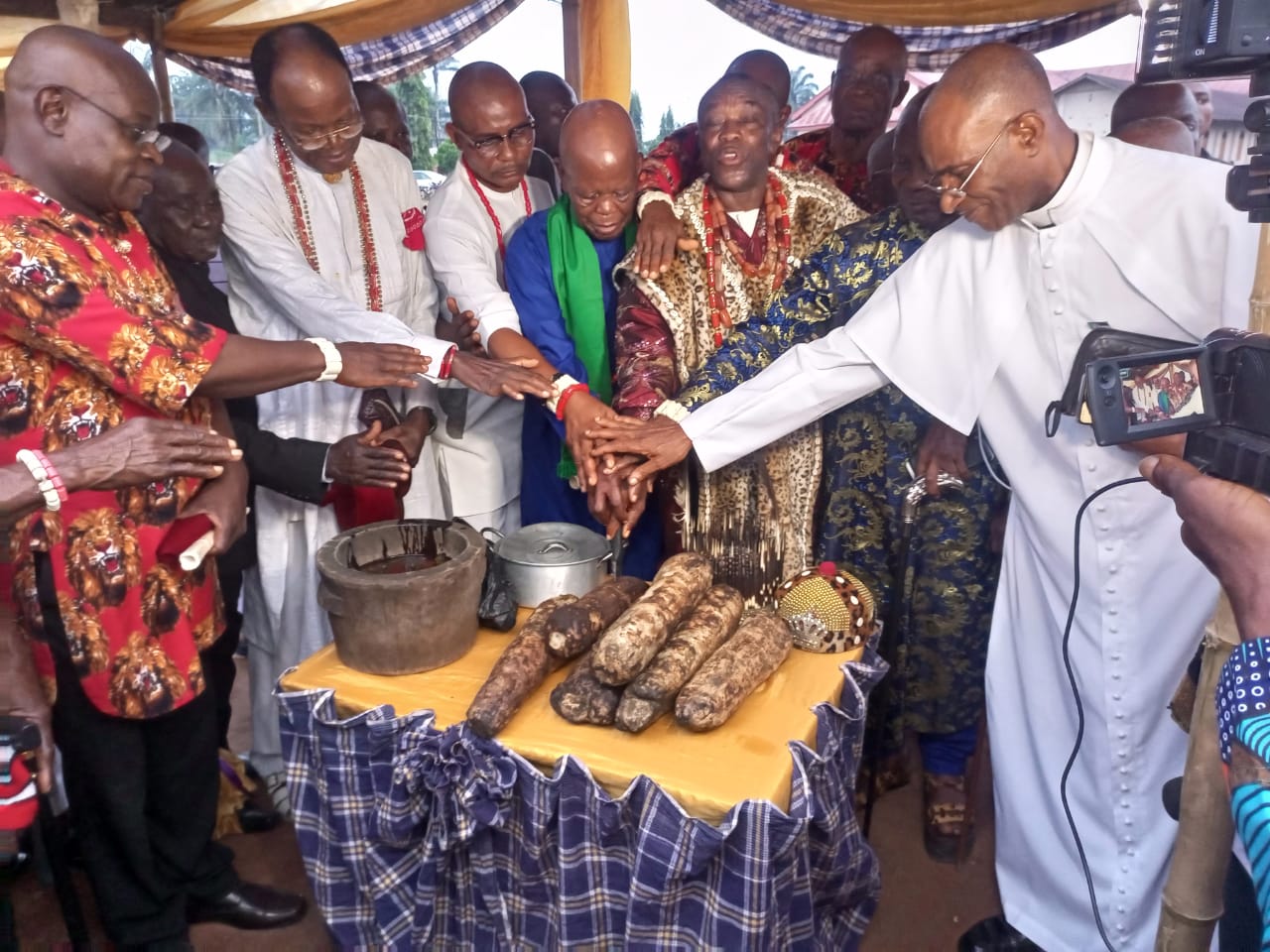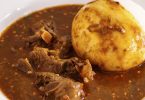The Igbo people can’t figure out what their cultural life would be without the New Yam Festival Nigeria. Local kings in Southeastern Nigeria lead the carnivore that lasts up to a week. They come out in full display of their ceremonial regalia, song, dance and acrobatic stunts to celebrate a bountiful harvest of yams.
It’s an annual festival that Igbo communities look forward to with a lot of zeal. It fosters unity and a sense of mutual success which is a binding factor for all who hail from this tribe. The most important part of this feast is celebrating life. No Igbo takes the gift of life lightly and yams have a hidden meaning to life’s potency. This article widely explains the intrigues and significance of this auspicious Nigerian festival.
Table of Contents
History of the New Yam Festival Nigeria
The famous Yam Festival Nigeria dates back hundreds of years and it celebrates the harvests of yams in early August. Igbos traditionally lived and practised an agrarian lifestyle that’s characterized by farming. For them, yams are more than a source of food. They also represent the following four things:

New Yam Festival in Nigeria is an annual fest by the Igbo community. Photo/Fab Magazine
- Fertility
- Wealth
- Prosperity
- Life
New Yam Festival Nigeria symbolically means that the people should be grateful for the gift of life, fertility, wealth and prosperity. Historians who have studied the Igbo culture about this festival indicate that it also honours the ancestors and the land for each harvest. Further, the end of a harvest signifies the start of a new cycle of life through tilling and planting whose literal context is seen in human fertility.
Preparations for the festival always start a week before with simple things like deep cleaning of homes, and village decoration.
What is the Significance of Yam in Igbo Culture?
Sustenance of life signifies the New Yam Festival Nigeria. These yams according to the Igbo traditions symbolise a community that feeds and energises the people. A few yams are selected as a gift ‘to the ancestors and gods’ after prayers led by spiritual leaders from the tribe. The oldest community elder leads this session that conveys the people’s gratitude to the gods and ancestors for a successful yam harvest season.
Once this is done, the celebrations begin with song and dance. There is always a brilliant display of cultural intrigues seen in traditional regalia and how the yams are prepared. Women boil, roast or pound them and then serve the people alongside signature Nigerian sauces and stews. Elders often look forward to mealtime to enjoy an unlimited supply of traditional brew.

The New Yam Festival is not Biblical in any way although it holds a special place in Nigerian beliefs. Photo/IMONews
Curious cultural enthusiasts from as far as mainland China and the US have graced the past editions of New Yam Festival Nigeria. There are 12 editions held so far and the fest organisers say that non-Igbos understand why the yam festival is so dear to them. International tourists visiting Nigeria’s Southeastern region appreciate a culture of gratitude annually exhibited by the Igbo tribe.
Is the New Yam Festival Biblical?
The New Yam Festival Nigeria is not Biblical although it holds a special place in Nigerian beliefs. What’s evident is that the yam carnival recognises the existence of African gods. Local kings or senior community elders offer a few yams to the gods before the ceremony starts as a sign of gratitude. This ritual denotes gratefulness and deep respect for culture.
Old yams are usually eaten on the eve of the New Yam Festival Nigeria to usher in the season of new harvests. The belief is that old yams may hold back the abundant giving of the land if they are not consumed before people celebrate a successful harvest.
What is the Purpose of the Feast of the New Yam?
Four things correctly define the purpose of the yam feast held every August. They are:
- Appreciation
- Success
- Celebrating life
- New beginnings
Whereas the festival is confined to the Igbo tribe, yams hold a special place in the hearts of Nigerians. It’s a staple food from which the popular Nigerian delicacy, fufu is derived. Moreover, this West African country accounts for 70% of the world’s global production of yams. A Nigerian meal will always have boiled, roasted or fried yams. That’s how popular it is in the country.








